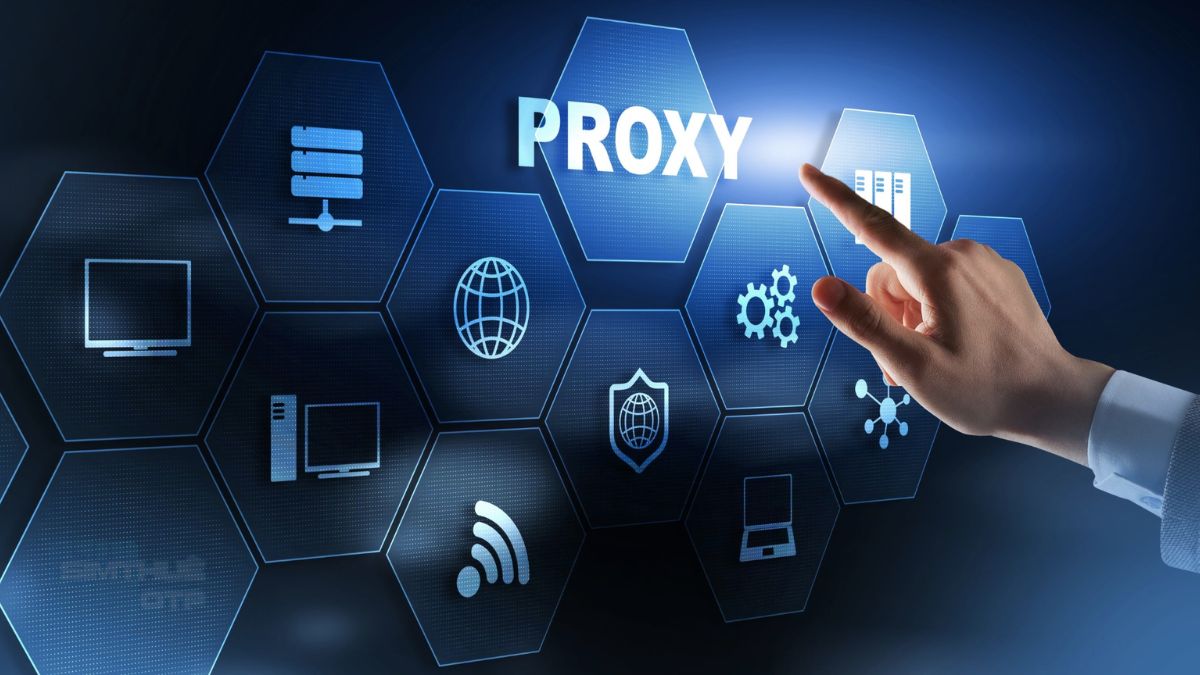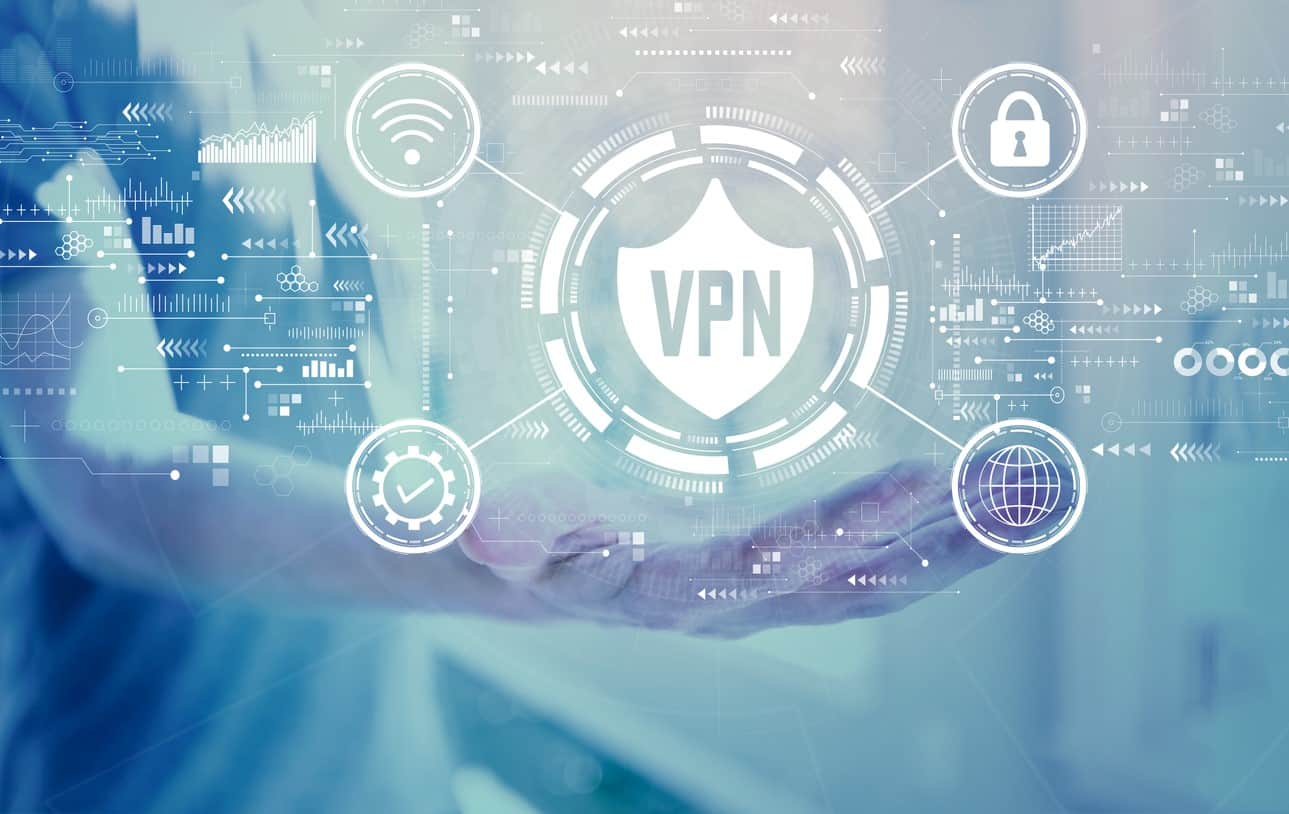With increasing cyber threats, data breaches, and surveillance activities, individuals and organizations are seeking effective tools to safeguard their online activities. Among these tools, Virtual Private Networks (VPNs) and proxy services are commonly employed to enhance privacy and bypass restrictions.
This article aims to elucidate the fundamental differences between VPNs and proxy services, focusing on their functionalities, security implications, and appropriate use cases. By understanding these distinctions, users can make informed decisions about which tool best suits their specific needs.
While both VPNs and proxies aim to mask user identity online, they differ significantly in terms of functionality, security features, and ideal applications. Recognizing these differences is crucial for selecting the appropriate solution for online privacy and security.
I. Understanding the Basics
A. What is a Proxy?
Definition
A proxy server acts as an intermediary between a user’s device and the internet. When a user sends a request to access a website, the proxy server forwards this request on behalf of the user, masking the user’s IP address in the process. This can provide a level of anonymity and is often used to bypass content restrictions.
Functionality
Proxies operate at the application level, meaning they handle traffic for specific applications or protocols. For instance, a proxy might be configured to manage web browser traffic but not affect other applications on the device.
Types of Proxies
- HTTP Proxies: Designed to handle HTTP requests, these proxies are commonly used for web browsing. They can cache web pages to improve load times but do not encrypt traffic.
- SOCKS Proxies: Operating at a lower level, SOCKS proxies can handle various types of traffic, including email, FTP, and torrenting. They offer greater flexibility but still lack encryption.
- Transparent Proxies: Often used by organizations, transparent proxies intercept traffic without requiring any configuration on the user’s part. They are typically employed for content filtering and monitoring purposes.
Limitations
While proxies can mask IP addresses, they do not encrypt traffic, leaving data vulnerable to interception. Additionally, some proxy servers may log user activity, posing privacy concerns. Their application-specific nature also means they do not provide system-wide protection.

B. What is a VPN?
Definition
A Virtual Private Network (VPN) establishes a secure, encrypted connection between a user’s device and a remote server operated by the VPN service. This “tunnel” ensures that all data transmitted between the device and the internet is encrypted, enhancing privacy and security.
Functionality
VPNs operate at the system level, affecting all internet traffic from the device. Once connected, all data, regardless of the application, is routed through the VPN server, providing comprehensive protection.
Benefits
- Encryption: VPNs encrypt all data transmitted between the user’s device and the VPN server, safeguarding information from potential eavesdroppers, including ISPs and hackers.
- Anonymity: By masking the user’s IP address, VPNs help maintain anonymity online, making it more difficult for websites and services to track user activity.
- Bypassing Geo-restrictions: VPNs allow users to access content that may be restricted in their region by connecting to servers in different locations.
Considerations
While VPNs offer robust security features, they may lead to reduced internet speeds due to the encryption process and the distance to the VPN server. Choosing a reputable VPN provider is essential to ensure data privacy and service reliability.

II. Key Differences Between VPNs and Proxies
A. Security and Encryption
- Proxies: Do not encrypt traffic; data transmitted through a proxy is susceptible to interception and monitoring.
- VPNs: Encrypt all data between the user’s device and the VPN server, providing a secure tunnel that protects against eavesdropping and data breaches.
B. Scope of Operation
- Proxies: Operate at the application level, requiring manual configuration for each program that needs to use the proxy.
- VPNs: Function at the system level, automatically routing all internet traffic through the VPN server once connected.
C. Privacy and Anonymity
- Proxies: While they can mask the user’s IP address, proxies may log user activity, and their lack of encryption means data can be exposed.
- VPNs: Offer higher levels of privacy, especially when using providers with strict no-log policies. The encryption ensures that user activity remains confidential.
D. Performance and Speed
- Proxies: May offer faster speeds due to the absence of encryption but can become overloaded, leading to inconsistent performance.
- VPNs: Encryption can introduce latency, potentially slowing down the connection. However, reputable VPN providers optimize their networks to minimize speed reductions.
E. Reliability and Stability
- Proxies: Connections can be unstable and are more prone to disconnections, especially if the proxy server experiences issues.
- VPNs: Generally provide more stable connections. Many VPN clients include features like kill switches that automatically disconnect the internet if the VPN connection drops, preventing data leaks.
III. Use Cases and Recommendations
A. When to Use a Proxy
Situations:
- Accessing Geo-Restricted Content Without Handling Sensitive Data: Proxies can be effective for bypassing regional restrictions on websites or streaming services. For instance, if you’re trying to access content available only in certain countries, a proxy server can route your request through a server located in the desired region, making it appear as though you’re accessing the content from that location. However, since proxies do not encrypt your data, they are best used when you’re not transmitting sensitive information.
- Bypassing Simple Content Filters: In environments like schools or workplaces where certain websites are blocked, proxies can help circumvent these restrictions. By routing your traffic through a different server, proxies can allow access to otherwise restricted sites. Again, this is suitable for non-sensitive browsing activities.
Caveats:
- Lack of Encryption: Proxies do not encrypt your internet traffic, leaving your data vulnerable to interception by malicious actors or surveillance by ISPs and governments.
- Limited Scope: Proxies typically operate at the application level, meaning they only reroute traffic from specific applications or browsers. This limits their effectiveness in providing comprehensive privacy protection.
- Potential for Data Logging: Some proxy servers, especially free ones, may log your browsing activity, which can be a significant privacy concern.

B. When to Use a VPN
Situations:
- Ensuring Privacy on Public Wi-Fi Networks: Public Wi-Fi networks, such as those in cafes, airports, or hotels, are often unsecured, making it easy for hackers to intercept your data. Using a VPN encrypts your internet traffic, protecting sensitive information like login credentials and personal data from potential eavesdroppers.
- Accessing Sensitive Information or Conducting Secure Communications: When handling confidential information, be it personal, financial, or business-related, a VPN provides an encrypted tunnel for your data, ensuring that it remains secure from unauthorized access.
- Bypassing Stringent Censorship or Surveillance: In countries with strict internet censorship or surveillance, VPNs can help users access blocked websites and communicate freely by masking their IP addresses and encrypting their online activities.
Advantages:
- Comprehensive Security: VPNs encrypt all internet traffic from your device, offering robust protection against data interception.
- Enhanced Privacy: By masking your IP address and preventing tracking by ISPs and websites, VPNs help maintain your anonymity online.
- Access to Restricted Content: VPNs allow you to bypass geo-restrictions and censorship, granting access to a broader range of online content.

IV. Conclusion
While both proxies and VPNs serve to mask user identity online, they differ significantly in functionality and security. Proxies are suitable for low-risk tasks like bypassing simple content filters or accessing geo-restricted content without handling sensitive data. However, their lack of encryption and limited scope make them inadequate for comprehensive privacy protection.
VPNs, on the other hand, offer a more robust solution by encrypting all internet traffic and providing system-wide coverage. They are ideal for securing sensitive communications, protecting data on public networks, and circumventing censorship.
For users concerned with privacy and data security, investing in a reputable VPN service is advisable over relying solely on proxy servers. VPNs provide comprehensive protection, ensuring that your online activities remain private and secure.
